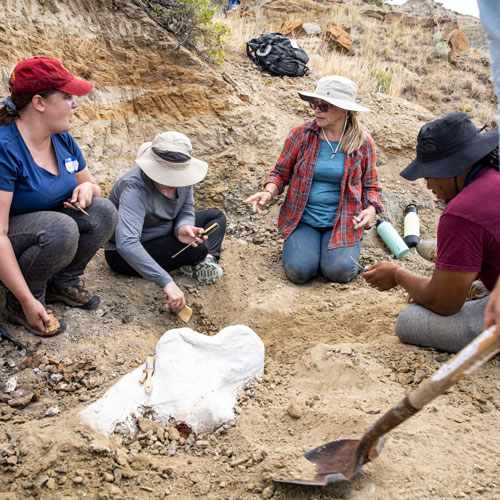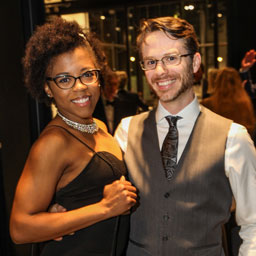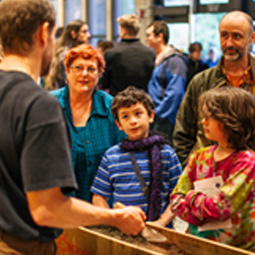Microfossil Community Science Workshop
Date & Time
Saturday, January 27
9 a.m. – 4:30 p.m.
This event is in the past.
Tickets
$30 registration fee per person
Participants elligible to receive
six (6) WA State STEM Clock Hours
Join the Discoveries in Geosciences (DIG) Team for a one-day professional development workshop for middle school educators. Learn more about the Hell Creek Project, get a behind-the-scenes look at the Burke fossil prep labs, and learn how to identify microfossils as part of DIG’s ongoing community science research project.
Teachers who complete the workshop will be eligible to rent our DIG Microfossils Box for free, which includes hands-on learning tools and NGSS-aligned lesson plans developed by the DIG Team and Burke Education. With these resources, middle school students can participate in real UW research as they look for microfossils in sediment samples, examine fossil casts, and connect with scientists from world-class institutions.
Participants are elligible to receive six (6) WA State STEM Clock Hours
Registration closes on Wednesday, January 17.
Please note that tribal school teachers and public middle school teachers in Seattle, Auburn, Kent, Fife, Renton, Federal Way, Tacoma, and Clover Park will be given priority placement for our upcoming workshop this January. Other interested middle school teachers are invited to join our waiting list to be notified when additional workshop spots are available.
 About the DIG Field School
About the DIG Field School
The DIG Field School connects K-12 STEM teachers with scientific research and researchers through ongoing professional development and teaching curricula.
The DIG provides teachers with an immersive learning experience through a four-day professional development program at active field research sites in Montana or Arizona, as well as year-round educational resources, support, and engagement with authentic research at the University of Washington (UW) and Virginia Tech (VT). This education and professional development is critical to increasing teacher effectiveness and student success.

